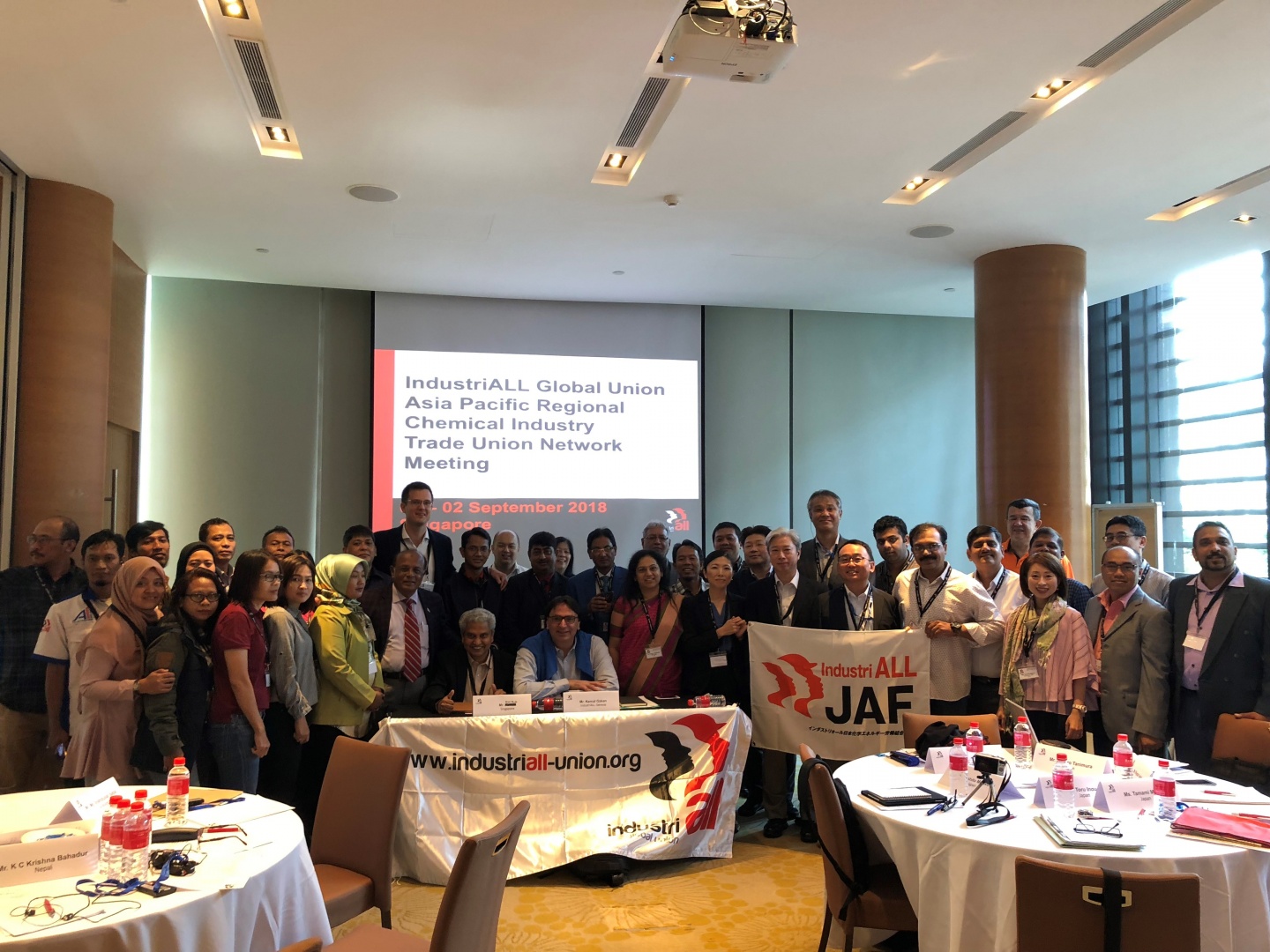Read this article in:
English
20 September, 2018Around fifty trade union leaders in the chemical industries from 11 countries in the Asia Pacific region came together to discuss current challenges in the rapidly-growing sectors and agreed on a road map.
The union leaders met in IndustriALL Global Union’s Asia Pacific chemical industry unions’ network in Singapore on 1-2 September, 2018. The meeting gave opportunity to the affiliated trade unions to share their experiences and discuss pressing issues and challenges as well as successes. It also aimed at coming up with strategies and plans to respond to the trends in the sector.
The global chemical industry is one of the largest sectors within the manufacturing ecosystem with its contribution to economic growth and employment by generating around US$ 3.9 trillion in sales annually. According to the estimation, the chemical industry is expected to reach the level of € 6.3 trillion in 2030, almost double from today, with a growth rate of 3.6 per cent. Directly employing directly around 20 million globally, the industry will grow in emerging markets in Asia Pacific region, particularly in China.
The global chemical industry is dominated by large multinational companies, such as BASF and DowDupont. With the changing economic conjuncture, the chemical companies pursue similar strategies, such as business remodelling, capacity expansion in emerging markets, innovation, Industry 4.0 and mergers & acquisitions.
The participants introduced their national and plant level difficulties and strategies as a base for regional cooperation in the chemical industry. A particular discussion was held around the impact of Industry 4.0 in the sector, with concrete plans developed towards the end of the meeting.
The issues discussed included employment in the chemical industry, with most countries sharing that union membership is declining due to increasing number of precarious workers workers which gravely affect organizing.
IndustriALL’s five strategic goals and particular strategy in the chemical industry was also analysed. The participants underlined the importance of creating a global enabling environment for the main developments in the chemical industry, particularly through ILO sectorial activities and social dialogue at various levels, including global.
Signing and implementing global framework agreements was also elaborated by the participants, particularly on the basis of successful example with the Belgian-based chemical company Solvay. Likewise, global-regional trade union networks were debated. The case of BASF was presented as an example.
The participants discussed supporting organizing and union building together with campaigns and solidarity actions. The participants gave full support to the unjustified dismissal of the president of Indonesian affiliate FARKES, Idris Idham.
Towards the end of two-day meeting, through targeted work groups, country and regional action plans were developed, discussed and adopted.
In his final statement, Kemal Özkan, assistant general secretary of IndustriALL said:
“I commend our affiliates in the chemical industry for their effort in organizing workers in the sector.”
“I recommend that our affiliates should increase and expand their network, solidarity and joint-activities, particularly in multinational companies.”










